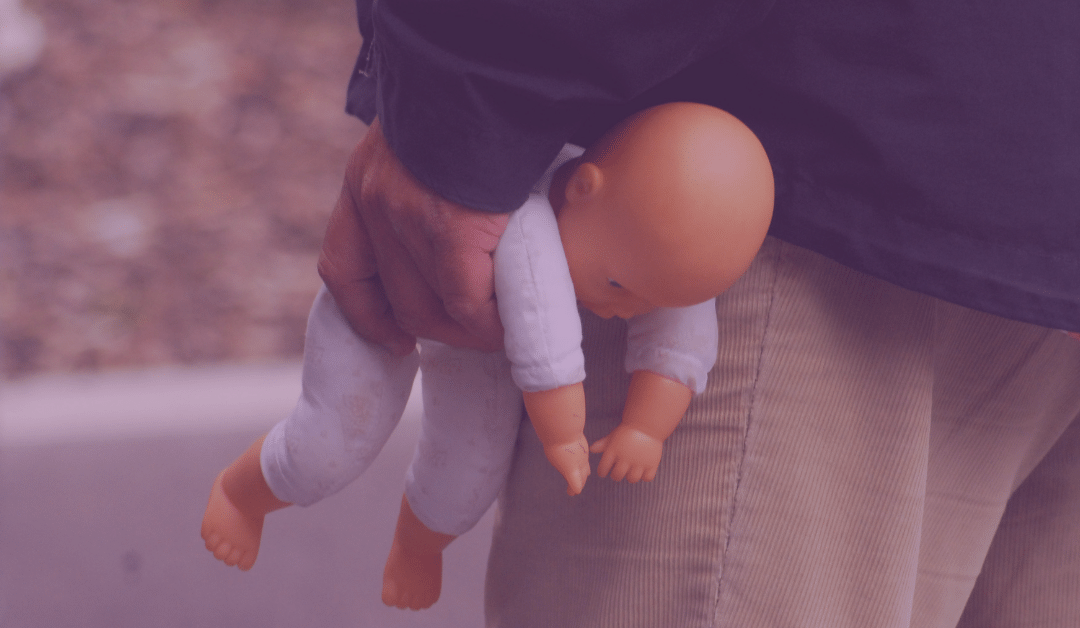
by Madeleine Craig | Oct 19, 2023 | Family Addiction, Hope for Families TV, Why I Do What I Do
Have you ever been told that your loved one just need to hit bottom before they’ll ever change?
Well, that is categorically untrue and is in fact a dangerous myth that still circulates in society.
So many of the cultural myths about addiction and family addiction (often referred to as codependency, although codependency occurs in many contexts), are hindering our ability to effectively address the addiction epidemic and its effects on families.
The myth I mentioned above is a case in point. But this myth is only one of many. Frankly, I’ve got a list of at least 30.
To learn more, watch the episode below. It’s the third episode in a series I’m doing called “Why I do what I do.”

by Madeleine Craig | Oct 12, 2023 | Family Addiction, Hope for Families TV, Why I Do What I Do
Have you ever had someone tell you that you can’t control your loved one use’s and that you just need to let go and detach and thought there has got to be something that I can do address this problem?
If you answered yes, I’m really glad you’re here, because this episode of Hope for Families TV is for you!
I talk a lot about cultural myths that circulate about addiction and family addiction. While the slogan “You can’t control it” is not a myth, it’s also not a complete truth. Families do have influence on the problem. They’re influencing the problem no matter what they do.
To learn more, watch the episode below. It’s the second episode in a series I’m doing called “Why I do what I do.”

by Madeleine Craig | Oct 5, 2023 | Family Addiction, Hope for Families TV, Why I Do What I Do
Have you ever wondered why we have not been able to resolve the addiction crisis? And why the problem just seems to keep getting worse?
If you answered yes to this question, this episode of Hope for Families TV is for you!
There are of course, several reason why we haven’t made more progress in addressing the problem. One of them, however, has to do with the lack of adequate support for you the family member.
To learn more, watch the episode below. It’s the first episode in a series I’m doing called “Why I do what I do.”

by Madeleine Craig | Jul 31, 2021 | Chaos to Clarity, Family Addiction
If you are already working a 12-Step program, but you are still struggling to address your loved one’s addiction and take care of yourself around this issue, you very well may need a family recovery program in order to do so.
There are several things to keep in mind here:
The 12-Step program that supported your recovery is designed solely to support your own individual recovery, not the recovery of a loved one. These programs may use an almost identical process, but they use them for very different purposes.
Also, you will not necessarily find the support of others who can help you face someone else’s addiction in your first recovery program. You will find them in a family recovery program, whether that’s a 12-Step family recovery program or something else.
It is easy for someone who has already recovered from their own addiction to think they can help their loved one recover too. But your loved one may not be willing to hear anything about recovery from you.
There might be too many other emotional ties in the mix to make them open to hearing it from you. They may need to hear it from someone else. Your example of recovery may be all you are able to effectively offer, at least in the beginning.
This might be difficult to accept, and you may need your own support around that, support you will find in a family recovery program.

by Madeleine Craig | Jul 31, 2021 | Chaos to Clarity, Family Addiction
It is not uncommon for someone who grew up with addiction in the family to marry someone with an addiction, have a child who develops an addiction, or both.
This is another reason for you to work on your own healing and recovery.
As an adult child of a mother and stepfather with addictions, however, I know that a specialized focus on issues specific to adult children can be extremely helpful. You might want to seek out 12-Step meetings that focus solely on adult children. You might want to learn as much as possible about the issues specific to adult children.
I would also suggest you learn more about complex PTSD, as children raised in homes affected by addiction often develop complex PTSD by the time they are adults, even if there was no physical violence in the home.
I’ve listed resources for this on the Resources page on my website. There are also resources there that are specific to parents of a substance user.

by Madeleine Craig | Jul 31, 2021 | Chaos to Clarity, Family Addiction
The Affordable Care Act does require all insurance policies to offer addiction treatment coverage. But it allows policies to set conditions on treatment if they choose.
Some policies require a person to go through outpatient treatment before they will cover in-patient treatment.
This can be really challenging – I know, because what it basically means is that your loved one has to fail out-patient treatment before they will be offered in-patient treatment, and that “failure” could have devastating consequences.
Other policies might require pre-approval before your loved one can be admitted to a treatment program. Again, by the time you get a doctor’s pre-approval, your loved one could change their mind.
There are three things you can do:
First, do your research about your insurance and available treatment options right away.
If your loved one will need pre-approval, it might be worth your while to contact your primary care physician, or another willing physician well ahead of time, explain your situation to them, and see if, when your loved one is ready, they would agree to get your loved one in on a last-minute basis so you can get the pre-approval with minimal delay.
Finally, I suggest you contact your congressperson and ask them to support updating the addiction treatment mandates in the Affordable Care Act.





